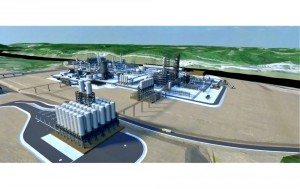
MORGANTOWN, W.Va. — Energy experts expect Shell Chemical Appalachia’s announcement of the construction of an ethane cracker plant in Pennsylvania to have an impact on West Virginia.
Brian Anderson, Director of the Energy Institute at WVU, said the initial benefit will be in employment.
“There is certainly an opportunity for the jobs that will be created specifically by this plant. People that live in the northern panhandle can easily commute there. So, there will be jobs there, both construction jobs in the near term as well as long term chemical jobs,” Anderson told MetroNews’ Talkline Host Hoppy Kercheval the day of Shell’s announcement.
The Pennsylvania plant, which will be built along the Ohio River in Beaver County about 30 miles northwest of Pittsburgh, is expected to create 6,000 construction jobs and 600 permanent jobs.
The plant will use ethane from natural gas drawn from Marcellus and Utica shales to produce polyethylene used in the manufacturing of
the most common plastics used in bottles, automobile parts and food packaging.
Anderson, also a chemical engineering professor, said it wouldn’t be surprising for plastics manufacturers to consider the same Appalachian region for development.
“If you end up creating this robust polymers industry, making it bigger and competing on the world scale with the Gulf Coast, we’re closer to markets. That’s why I think this is one piece of an entire puzzle that goes all the way to the fracture tip in the subsurface all the way to the surface.”
According to parent company Royal Dutch Shell, more than 70% of the North American polyethylene customers are in a 700 mile-radius of Pittsburgh.
The company, Anderson said, must be confident of market potential, especially since many companies are scaling back on investments around the world.
“We now have some of the lowest ethane prices on the planet in the Appalachian basin. They see a future return on investment,” explained Anderson.
Shell’s announcement to begin construction on a cracker plant in 18 months included estimates of using the ethane from Marcellus and Utica shales to produce 1.6 million tons of polyethylene each year.
“It shows you that they are being very strategic about their investment and this is where they’ll be sinking a few billion dollars,” Anderson proclaimed.
The Shell project was initially proposed in 2012.


